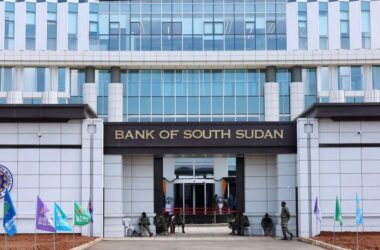By Milly Bayi Nyuga
In Don Bosco IDP camp at New Site in Juba, it is still gloomy for the people who fled their homes for safety with hope of living a better life.
Established in 2014 after the outbreak of civil war in 2013, Don Bosco Gumbo camp for Internally Displaced Persons (IDPs) in Juba is home to 9,742 people. The majority of the population are women and children with no husbands or fathers, the elderly and the orphans.
Representative of the IDPs met with The Global network of Civil Society Organizations – South Sudan (GNDR) under the theme called; Consolidating different approaches designed by stakeholders to reduce vulnerabilities of displaced population in South Sudan and institutionalize them in national and international system to discuss on the sustainable solution to IDPs.
The IDPs with their theme; “My country – my rights” came up with solutions and recommendations to the government, peace and development partners.
One of the IDPs, Lomoro Barthlomeo who is living at Don Bosco IDP camp mentioned unemployment and congestion as one of the main challenges facing them.
“Unemployment of the biggest population in the camp is a big problem because people especially the young ones have resorted to crimes. There is a lot of criminal activity which also burdens the security in the camp,” Lomoro said.
He appealed to the government to return them (IDPs) to their original homes, instead of relocating them all the time, as they are being congested with hard live because there are few resources yet they are many.
Another IDP, Ms Silwa Atoo Okech also from Don Bosco Camp said that women have been facing issues related to Sexual and Gender Based Violence; she said that it has been going on in the camp with little to no intervention.
“We are facing real challenges. We lack space to express ourselves. We lack whom to tell our problems. I wonder if the government even cares about us. The agencies which used to give us food ratios no longer support us,” Silwa grieved.
Ms. Atoo said cautioned government on what lies ahead as they long to walk back to home from the horrible situation they face in the camp.
“What is our fate really? How long shall we live in this situation because the hope of returning home is not clear and it is dying,” Silwa
Despite the hardships, Root for Generation (ROG), Women Empowerment Agency and other NGOs are supporting and empowering the people in Don Bosco IDP camp with sustainable solutions to improve their livelihoods.
Amura Phillip, the Operations Manager for ROG told No.1 Citizen Newspaper the sustainable solutions that they provided to the IDPs.
“They needed jobs so we created businesses for them. Provided them with the entrepreneurship training to run businesses then we gave them capital to run the business of their choice. They said that if we give them food, they will come back for more the next day and water will not solve anything,’ Amura said.
“We have given them skills to keep them self-reliance so that especially the women can be able to buy food and cooking fuel and this reduces the risks of being exposed to sexual abuse like rape when looking for firewood.” He added.
A research team from the University of Juba in in 2021collected information from the IDPs and revealed that the issues facing the IDPs are critical and need to be solved.
Benjamin Awet, a student at the University of Juba who also is part of the research team that went to Don Bosco last year gave his findings.
“I found many orphaned children, who is supposed to be in charge of them? Also, mental illness is a big challenge. There are many mental illness patients but we need durable solutions for the issues that are facing these people.” Awet said.
However, he also revealed that IRC which conducted a study in the camp has not yet given the feedback on this data. He also emphasized how it is the government’s mandate to protect and provide its citizens but not the NGOs.
“It is the government’s mandate to protect these IDPs. It should assess and come up with modalities but instead the government relies on NGOs who have abandoned their duties.” Owet stressed.
Porogo Regina Wani, another student at the University of Juba and one of the team that carried out the research in Don Bosco Camp last year described her findings last year.
“During the research we carried out last year, the IDPs were really in hardships, I met a widow who had to take care of two children. A lot of NGOs supported them with food, shelter but right now those carpets are worn out. Even drugs are inadequate in drug stores. Many of them were still traumatized from the horrible incidents they saw.” Regina explained.
Julius Okiring, the Programme Manager for Women Empowerment Agency stated how they provided the IDPs with beneficial skills.
“We trained the IDPs in Don Bosco Camp especially the women in sustainable and reliable solutions like urban farming, growing vegetables and crops so that they can feed on that and sell some too to get income from there,” Julius Okiring said.
The goal of the brainstorm/round table discussion was to arrive at a uniform message for advocacy at national level which will address issues of forced displacement from natural disasters and violent conflicts and to illicit appropriate response from international and local actors.


